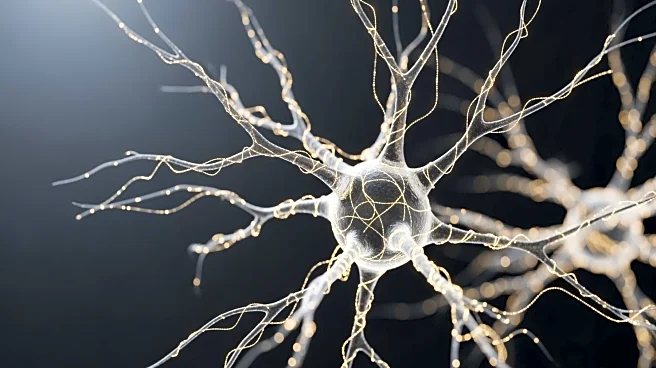What's Happening?
Prime Minister Narendra Modi has inaugurated projects worth Rs 42,000 crore aimed at modernizing India's agriculture and allied sectors. The initiative includes the launch of two major schemes: the PM Dhan Dhaanya Krishi Yojana and the Mission for Aatmanirbharta in Pulses, with a combined outlay of Rs 35,440 crore. Additional projects valued at over Rs 5,450 crore have been rolled out in agriculture, animal husbandry, fisheries, and food processing sectors. Modi emphasized the importance of farmers in building a developed India and highlighted the need for crop diversification to enhance export-oriented production. He noted significant growth in agricultural exports and milk production over the past 11 years, attributing this to recent reforms and GST reductions that have benefited rural India.
Why It's Important?
The launch of these projects is a significant step towards achieving self-reliance in India's agricultural sector, which is crucial for the country's economic growth and food security. By focusing on crop diversification and reducing import dependency, India aims to strengthen its position in the global market. The emphasis on animal husbandry, fish farming, and beekeeping is expected to empower small farmers and landless families, contributing to rural development. The initiatives also align with the government's broader goals of increasing agricultural productivity and supporting sustainable practices, which are vital for long-term economic stability and environmental conservation.
What's Next?
The government plans to continue supporting farmers through various initiatives, including the establishment of artificial insemination training centers and centers of excellence. The focus will remain on enhancing domestic production to reduce import dependency, particularly in pulses. The success of these projects could lead to further investments in the agriculture sector, potentially attracting private sector involvement and fostering innovation. Stakeholders, including farmers and industry leaders, are likely to monitor the implementation and impact of these projects closely, with potential adjustments based on feedback and results.
Beyond the Headlines
The projects reflect a broader shift towards sustainable agricultural practices and the empowerment of rural communities. By promoting crop diversification and modern farming techniques, the government is addressing both economic and environmental challenges. The initiatives could lead to increased collaboration between government agencies, private companies, and local communities, fostering a more integrated approach to rural development. Additionally, the focus on reducing import dependency aligns with national security interests, ensuring a stable food supply in the face of global uncertainties.










